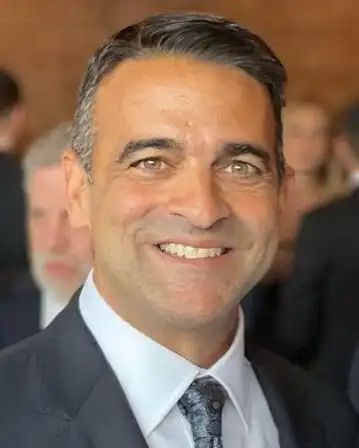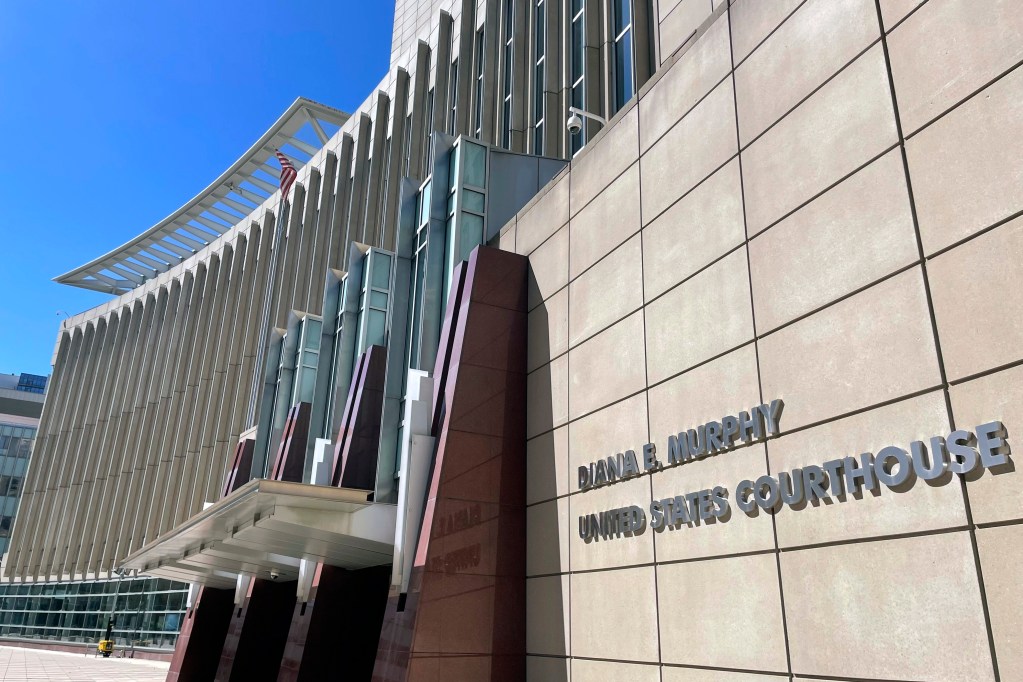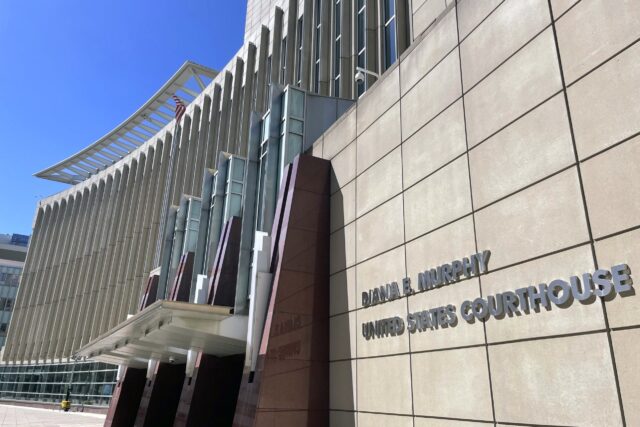

WASHINGTON – It’s been a waiting game for Daniel Rosen, President Donald Trump’s choice to be the new U.S. attorney in Minnesota, one that began in May when he was nominated and could last a while more.
The White House hoped to install a slate of more than 30 U.S. attorneys Trump nominated early in the year, including Rosen, before the U.S. Senate disbands for its August break.
But, while Rosen’s nomination was approved by the Senate Judiciary Committee last week, none of the slate of candidates have received a confirmation vote in the full U.S. Senate.
Democrats are stalling confirmations of Trump nominees by insisting on procedural votes on each nominee, including non-controversial ones like Rosen, whose candidacy was supported by Sen. Amy Klobuchar, D-Minn., a member of the Judiciary Committee.
Klobuchar said Rosen “has committed to us that he will continue the office’s tradition of excellence.”
The slowdown prompted frustrated Senate Majority Leader John Thune on Monday to issue a veiled threat to postpone the Senate’s August recess until the logjam is broken and the “historic level of obstruction” is ended.
“Democrats have not allowed a single civilian Trump nominee to pass by unanimous consent or voice vote — even when Democrats have ultimately ended up supporting the nomination in significant numbers,” Thune said.

Rosen, a seasoned attorney with experience before juries but none as a prosecutor, was nominated in early May. His lack of prosecutorial experience is rare for someone chosen to be the federal government’s top cop in Minnesota. But Rosen would inherit an office with dozens of attorneys, many of them with experience prosecuting criminals.
Rosen was included on a short list of recommended candidates drafted by Minnesota’s GOP members of Congress, led by Rep. Tom Emmer, R-6th District. That list included veteran lawyer Ronald Schutz and Erica MacDonald, who served as U.S. attorney during Trump’s first term, but the president chose Rosen.
A week later, however, Rosen’s nomination hit a speed bump when Senate Majority Leader Charles Schumer, D-N.Y., announced a hold on all judicial nominees until the White House released more information about the offering by Qatar of the gift of a jet to Trump.
On Tuesday, Josh Sorbe, a spokesman for Sen. Dick Durbin of Illinois, the top Democrat on the Judiciary Committee, said his boss “is exercising the same powers that then-Sen. (JD) Vance used to hold U.S. attorney nominees for more than a year during the Biden Administration.”
But Sorbe also said Durbin “continues to discuss a path forward” to end the impasse.
A bitter fight in the Senate over the nomination of Emil Bove, a candidate for a seat on the U.S. Court of Appeals for the 3rd Circuit who represented Trump in three of the four criminal cases against him, may hamper efforts to find common ground.
Bove has been subject to whistleblower complaints that he violated laws and Justice Department regulations in his short tenure as a DOJ official. But the Republican-led Senate confirmed him Tuesday night.
If a deal can’t be reached, or if Rosen’s confirmation vote isn’t part of the deal to move nominees forward this week, the earliest he could be confirmed is in September – and it could be even later.
Biden-appointee U.S. Attorney Andrew Luger resigned about a week before Trump returned to the White House this year. So, until a replacement for Luger is confirmed, the job has fallen on acting U.S. Attorney Joe Thompson, who has won recognition for his prosecution of Vance Boelter, the man accused of killing state Rep. Melissa Hortman and her husband, Mark.
Rosen as a bartender in a Chinese restaurant
Rosen, who preferred not to speak on the record for this story as his confirmation vote is pending, has used the time his nomination has been in limbo to move out of a condo he valued to be worth $2.4 million in Key Biscayne, Florida, to the Twin Cities.
Rosen, 59, said in his answers to a questionnaire from the Senate Judiciary Committee that he has worked as an attorney in Minnesota since 1993, for various law firms and also on his own.
He also listed as previous jobs a stint as a bartender at a Chinese restaurant in Minnetonka and service in the Navy and U.S. Naval Reserves.
Several things are made clear in Rosen’s answers to the questionnaire. Among them is that he has a passion for eminent domain cases.
He represented landowners in a case against Hennepin County over the site that would become the stadium for the Minnesota Twins, a case that was settled for $29 million and is believed to be the top eminent domain case in the state.
Rosen is also passionate about the Jewish religion and Israel. He is a former board member of the Jewish Community Relations Council of Minnesota and the Dakotas and the former Minnesota Chair of the American Israel Public Affairs Committee (AIPAC) and a current member of the organization’s national council.
As the primary lawyer for the Orthodox Jewish Community in Minneapolis, Rosen cited as one of the cases he took pro bono, or without charging a fee, one in which he represented the families of two men who were murdered and whose bodies were slated for autopsies.
In observance of Jewish principles, the families of those victims objected to the autopsies and, by seeking a restraining order, came to an agreement with the coroner in which he received the information he needed without having to do the dissection that is typically involved in an autopsy.
Rosen has also been involved in GOP politics. He was the campaign attorney for Kendall Qualls, a businessman who ran for governor in 2021 but dropped out of the race after he failed to win his party’s endorsement. Qualls is running for governor again.
Asked by the Judiciary Committee to list all media interviews, Rosen cited a 2oo6 Jewish Telegraphic Agency story about Minnesota Attorney General Keith Ellison’s first run for Congress in which Rosen was quoted.
At the time, Ellison was taking heat for his relationship with Nation of Islam leader Louis Farrakhan, who was notorious for his antisemitic remarks. Ellison told the Jewish Telegraphic Agency that “I should have examined the message of Mr. Farrakhan closer.”
But Rosen told the Jewish Telegraphic Agency he dismissed Ellison’s explanation of his post-college association with Farrakhan as disingenuous.
“You cannot as an adult and as a lawyer have a lengthy association with an organization with the rhetoric of the Nation of Islam and deny that during that time you understood that the organization was anti-Semitic without either insulting the intelligence of the Jews or owning up to a distinct lack of intelligence on your own part,” said Rosen, who also attacked Ellison’s writings at the University of Minnesota Law School as antisemitic.
Rosen, who also told the Judiciary Committee he made similar remarks to Newsweek, would have to work with Ellison from time to time on certain prosecutions.
There seems to be no doubt about Rosen’s skills as a lawyer. U.S. District Judge Eric Tostrud was once opposing counsel on a 10-year case brought by an association of nurse anesthetists against a group of doctors and hospitals. The case was settled just as it was about to go before a jury in 2023.
Tostrud, who represented the doctors and hospitals, said he developed a “great relationship” with Rosen during that long legal battle and a great respect for his opponent’s lawyering skills.
“He had the chops to understand complex legal questions,” Tostrud said. “I thought he did substantive work and was very professional.”
The post U.S. Attorney candidate Daniel Rosen caught in partisan fight over Trump nominees appeared first on MinnPost.















































